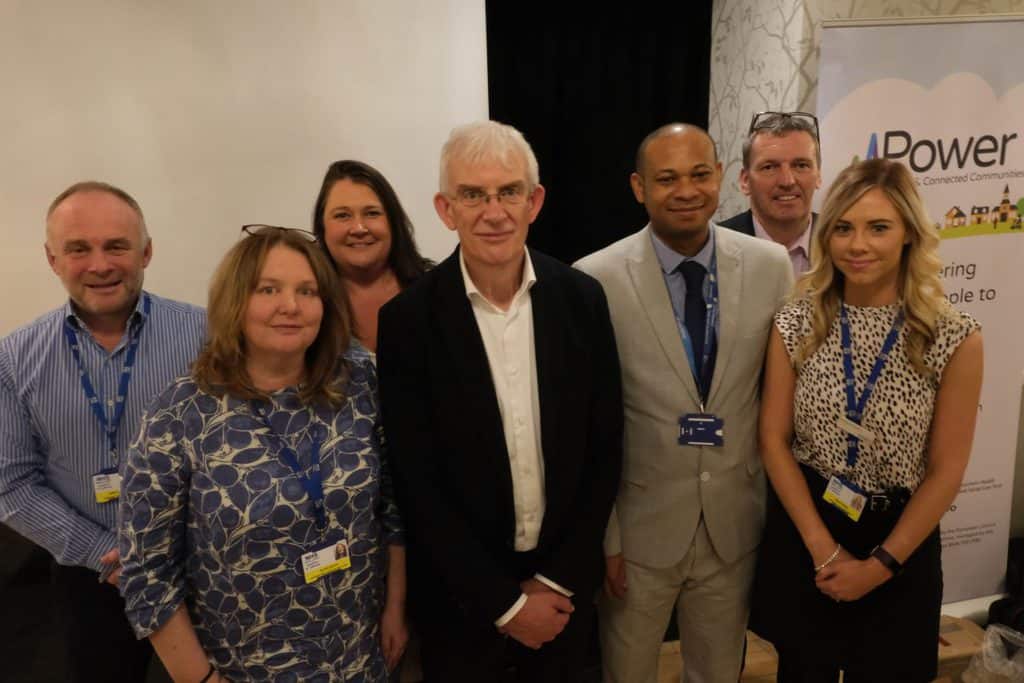A CHALLENGE around our approaches to ageing has been delivered by an expert in the field as part of Transforming Wigtownshire, Dumfries and Galloway.
Professor Peter Gore is a leader in the field of how to age well and increase vitality, and last month was the driving force at a two-day event in Stranraer focused on the issue.
Speaking after the event, General Manager for Community Health and Social Care Graham Abrines said: “Professor Gore has really helped to break new ground in approaches to ageing, and age-related physical decline.
“The two-day event arranged as part of Transforming Wigtownshire was a real wake-up call to the many health and social care professionals and members of the public who attended across several sessions.
“Professor Gore’s eye-opening insights forced us all to reassess long-standing assumptions around ageing, and to start thinking, planning and acting differently. This will have a major impact on the co-productive work currently being undertaken in partnership with our communities through the Transforming Wigtownshire programme.”
Professor Gore introduced the LifeCurve™, which he has developed with colleagues at Newcastle University as a new way of thinking about, mapping and even potentially halting or reversing age-related physical decline.
The Professor explained that the best physical decline is a sharp one at the very end of the person’s life, where someone is able to retain the ability to undertake a wide range of physical activities healthily and independently.
He and his colleagues have found that people lose their ability to do daily tasks in a predictable order, from not being able to touch one’s toes through to the point eventually depending on others for help with washing and eating.
And he noted that identifying those declines using the LifeCurve tool will help those involved in health and social care to recommend actions to slow someone’s physical decline or even reverse it.
During his presentations Professor Gore challenged thinking which sees some people resigned to an expectation of physical decline, even at a relatively young age, and explained how the improper use of some assistive technologies can sometimes introduce a long-term dependency, and even further a person’s decline.
Dumfries and Galloway Health and Social Care Partnership’s Strategic Planning and Commissioning Manager Ruth Griffith praised the development of the LifeCurve, which also takes the form of an interactive application allowing someone to map theirs or someone else’s current position on the projected physical curve of decline.
Ruth said: “The ADL LifeCurve is a tool which is used to map age-related functional decline. It provides a framework for understanding the most appropriate stage to intervene and which interventions are most effective.
“The new app asks people some simple questions about what they are physically capable of doing. It then works out whether they are on the LifeCurve, and if they are already at a point on the LifeCurve then provides suggestions about activities the person can undertake to slow further decline.
“As Professor Gore explained, LifeCurve aims to give older adults the independence to live better for longer.”
In addition to presentations, the two-day event included question and answer sessions as well as workshops allowing the likes of GPs, practice managers and primary care nursing staff the opportunity to put together plans of how best to implement the learning that has emerged through LifeCurve.
One clinician who attended said: “It was a great day. Not only did I get to meet others doing similar work and learn from their experiences, but the workshops meant I could go back to the team with a plan that we can put into action.”
The two-day event at the North West Castle Hotel was hosted by the local mPower project team. In addition to featuring display stands which helped to highlight local sources of health and social care support, the event also included Tai Chi demonstrations.
Summing up after the event, Professor Peter Gore said: “Even clinicians are surprised by how much control we have over our own aging process, so I was thrilled to be able to share my learnings with this audience, knowing that they will do their utmost to share the knowledge with their patients and to seek the best interventions possible for them.”






